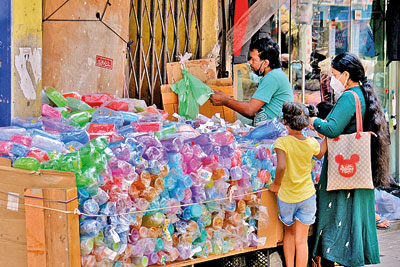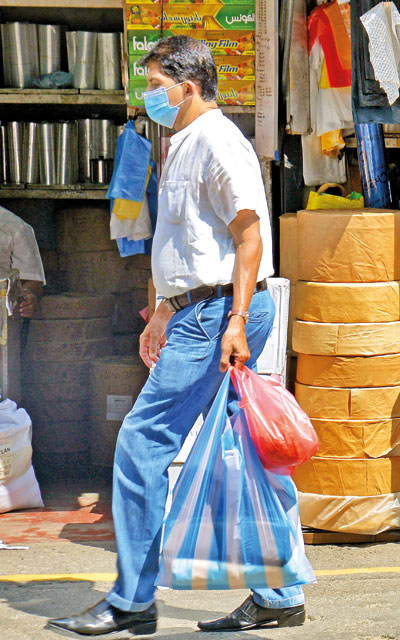News
Pandemic pushes back plan to proscribe plastic products
 The Environmental Ministry’s plan to ban single-use and short-term plastic items, including inflatable toys, has been delayed due to pandemic-related economic concerns, a senior official said.
The Environmental Ministry’s plan to ban single-use and short-term plastic items, including inflatable toys, has been delayed due to pandemic-related economic concerns, a senior official said.
The Central Environment Authority (CEA) said the decision was shelved considering the economic crisis the country was facing during the pandemic.
In January last year, the CEA issued a gazette notification to ban polyethylene terephthalate (PET) or polyvinyl chloride material for packing agrochemicals from March 31, last year.
The gazette also announced a ban on the use of plastic in the manufacture of sachets with a volume of less than 20 millilitres or 20 grams unless they are used for packing food or medicine. The ban also covered the use of plastic in the manufacture of cosmetic items, sports gears, inflatable toys, cups, spoons, forks and cotton buds.
CEA Deputy Director General J.M.U. Indraratne said the Government decided not to implement the ban because the Government felt it would further affect small and medium-scale manufacturers and associate industries which were struggling to stay afloat during the pandemic.
However, he said the ban would come into force from January 1 next year and the violators would be strictly dealt with.
According to draft regulations which are being studied by the Attorney General’s Department, first time offenders will have to pay a fine of Rs. 10,000 and the second time offenders will have to pay a fine of Rs. 200,000. Third time, the machines used in the production of the items will be confiscated. 
Mr. Indraratne noted that most big industries had abided by the gazette notification and stopped the production of mini sachets. But small scale industries continue their production, with some increasing their production to fill the shortage created by the bigger industries’ decision to stick by the ban.
According to a survey, around 4 million sachets are thrown into the environment every month, leading to blocked drains, culverts and pollution of rivers, lakes and the sea.
Meanwhile, the ban on lunch sheets introduced in August 2021 is in force.
More than 50 lunch sheets manufacturing factories which defied the ban have been raided since August 2021. Up to 15 million tons of lunch sheets have been seized in these raids.

Pix by Eshan Fernando
The best way to say that you found the home of your dreams is by finding it on Hitad.lk. We have listings for apartments for sale or rent in Sri Lanka, no matter what locale you're looking for! Whether you live in Colombo, Galle, Kandy, Matara, Jaffna and more - we've got them all!

